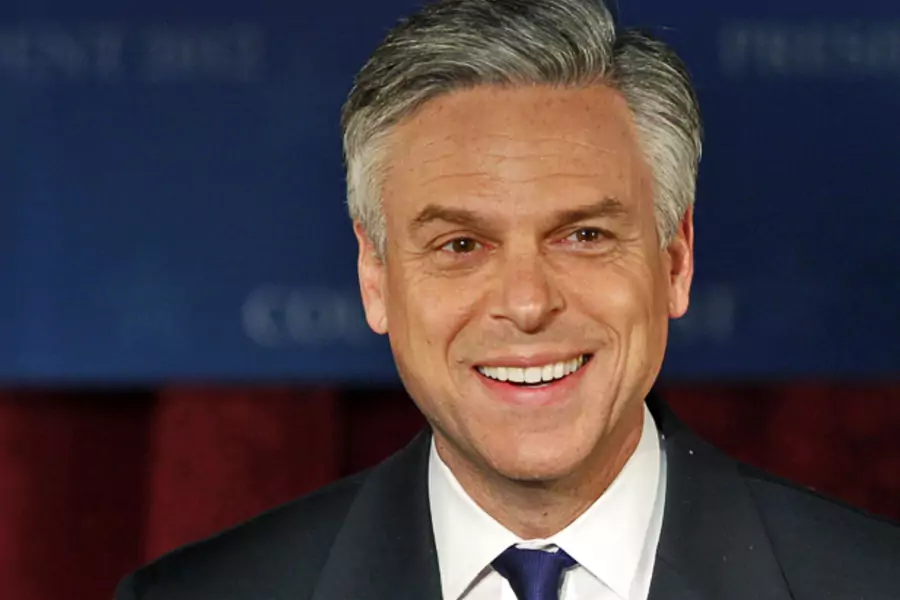The Renewing America Interview: Jon Huntsman on the Wisdom of Boosting U.S.-China Economic Ties

More on:
Later this week the U.S. Department of Commerce will host its inaugural SelectUSA Summit, an annual convention intended to promote overseas investment in the United States. The sold-out, two-day forum will connect international businesses with U.S. economic development leaders at the federal, state, and local levels. With lingering high unemployment in the wake of the financial crisis, the White House has made attracting foreign investment and insourcing jobs a top economic priority.
Few nations are wading into foreign markets more aggressively than China, whose direct investment stock in the United States soared 15-fold from 2005 to 2012, from $700 million to $10.5 billion. Meanwhile, U.S. firms are equally hungry to expand in China, but face a difficult business environment with major competitive restrictions. U.S. FDI stock in China was $51.1 billion in 2012, up from roughly $30 billion in 2007.
The dynamic has helped reignite high-level discussion of a U.S.-China bilateral investment treaty (BIT), which would normalize rules and protections for private investment in the world’s two largest economies. “I think the prospects for a BIT are excellent,” said Jon Huntsman, former U.S. ambassador to China (2009-2011) and governor of Utah (2005-2009), in a recent CFR interview, “but a lot of it will be driven by America’s desire to want to move more aggressively on the economic front with China.”
Huntsman, who as deputy U.S. trade representative helped engineer China’s accession to the World Trade Organization in 2001, said the U.S. strategic rebalance—the so-called “pivot to Asia”—has been overly focused on security while falling short on the diplomatic and economic fronts. He says the Trans-Pacific Partnership, a free trade deal that would include the United States, Japan and ten other Asia-Pacific countries, would fill in some of these gaps. With regard to China, he says “we’re too consumed with defense; we need some offense, and the bilateral investment treaty offers itself as something we can put on the table.”
He noted that U.S. international economic policy is “showing signs of life” in recent months with President Obama’s appointment of Penny Pritzker as secretary of commerce and Michael Froman as U.S. trade representative. “The interagency process is being kicked up a notch, which is good. And it’s timely because we’ve been really missing-in-action in the Asia-Pacific region with respect to trade.”
China is poised for a new phase of market reforms after scaling back economic liberalization in the decade after September 11th, Huntsman said. “Now you have the rise of the fifth generation of [Chinese leadership led by] Xi Jinping, and on his agenda, clearly, is the need to transition China from the investment-supported export machine, which really has reached its apex. They’re stuck in the middle-income trap and they’ve got to move beyond in order to pay the bills.”
China’s new leadership agreed to reenter BIT talks with Washington in July, just months after assuming power (discussions had been frozen since 2009). Then in September, Beijing opened the Shanghai Free Trade Zone, which many China experts, including Huntsman, see as an encouraging gesture and a test bed for future national reforms. “The Shanghai Free Trade Zone is pretty much taking the economic regime to the next level of globalization but doing it selectively. I suspect the focus will be on the services sector: on banking, on finance, on services whether legal or architectural or design. Some of the other nontraditional things that they’ve been a little derelict in liberalizing,” he said.
Huntsman says a BIT would be a major catalyst for commerce between the United States and China, helping to spur two profound changes in the bilateral economic balance: growth in U.S. exports to China—as the renminbi seeks a closer position to market value—and significant Chinese investment in the United States.
Chinese firms historically have lagged behind other nations in overseas investment (as a percent of GDP), but this is changing rapidly. China is expected to become a net investor in the world by 2017, around the same time Beijing says the majority of outward investment will come from private enterprise. Last month, the $7.1 billion sale of pork product giant Smithfield Foods to Shuanghui International was the largest Chinese purchase of a U.S. company in history. The single transaction doubled to more than 70,000 the number of U.S. workers collecting Chinese paychecks.
Aside from the mutual economic benefits, Huntsman says BIT negotiations—which he thinks could take anywhere from five to ten years—would help counterbalance other bilateral challenges, such as Taiwan or cybersecurity. “There’s always something going on in the U.S.-China relationship that causes stresses and strains. My biggest challenge as ambassador was making sure there were enough offsetting collaborative issues that can keep us from being completely confrontational. And that’s where something like the bilateral investment treaty really goes a long way in keeping us at the table, working productively toward something that’s more aspirational. My big gripe today about the U.S.-China relationship is we don’t have enough in the way of aspirational work; we don’t have enough in the way of big picture, visionary undertakings that keep us out of trouble.”
Speaking generally on U.S. trade policy, Huntsman says presidents should be granted permanent Trade Promotion Authority, which allows the executive to submit trade deals to Congress for an up-or-down vote without any amendments. President Obama is likely to ask Congress for this authority to conclude the negotiations on the Trans-Pacific Partnership.
“It’s critical on two fronts,” Huntsman says. “One, it signals to our foreign-trading partners that we as a government, not just the executive branch, are ready to negotiate, with the imprimatur of the nation. Two, you’re not going to get the best negotiating points put on the table without trade promotion authority because your foreign partners simply won’t take you seriously.”
More Renewing America Interviews can be found here.
More on:
 Online Store
Online Store
